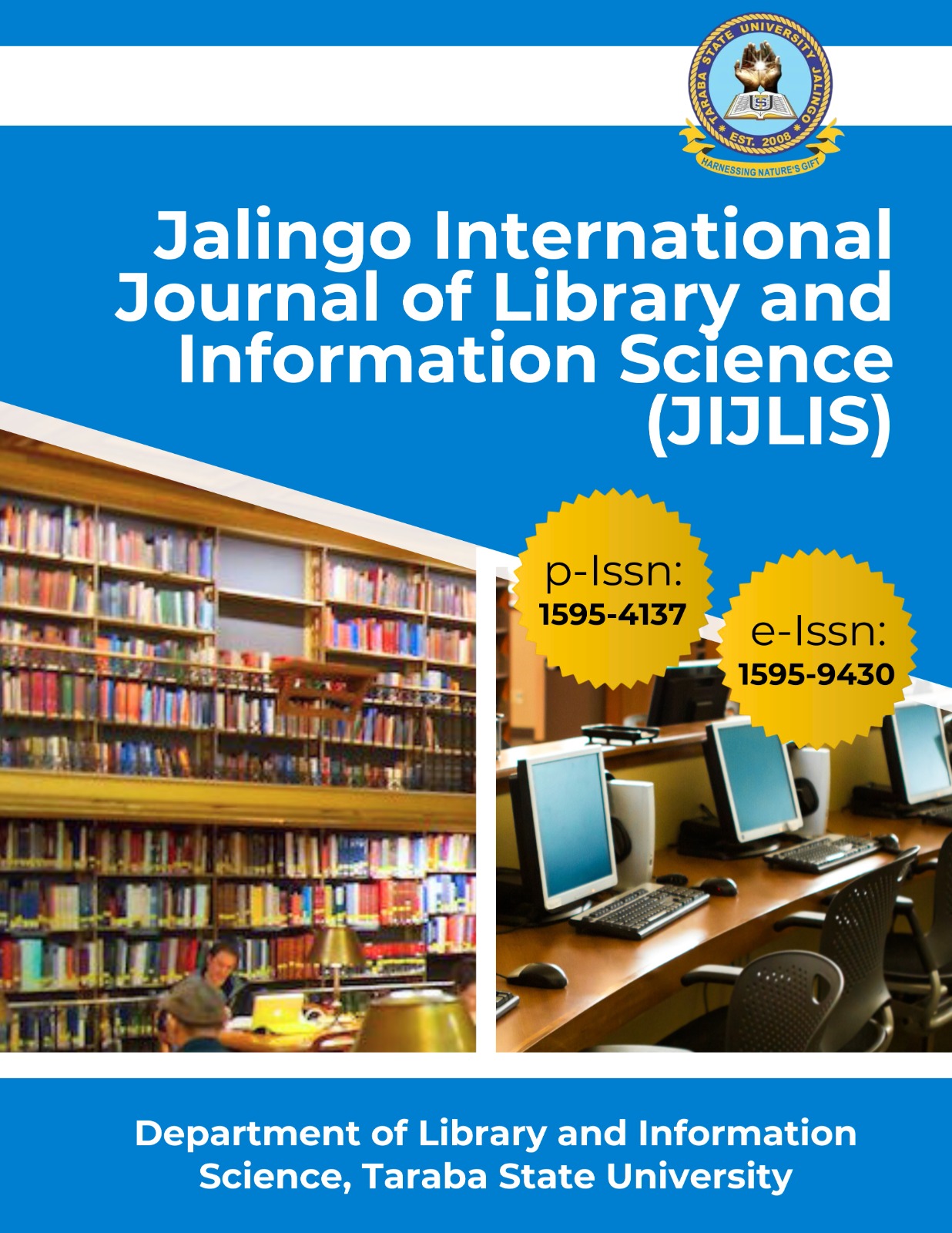User Education and Utilisation of Resources by Undergraduates in Nigerian University Libraries
Abstract
The study investigated user education and utilisation of resources by undergraduates in Nigerian university libraries in Nigeria. Three research objectives and corresponding questions guided the study. The study covered undergraduates drawn from 7 state-owned universities in Delta, Edo and Rivers states, Nigeria. The study employed a correlational research design. The population of the study was 2,030 undergraduates, from which a sample of 325 was selected employing the multi-stage sampling technique. The questionnaire was the only instrument used for the collection of data. A total of 325 copies of the questionnaire were administered to the respondents, while 268 (82%) copies were retrieved and used for data analysis. The findings of the study revealed that the user education programmes organised for undergraduates are library orientation sessions (268, 100%) and subject specific instruction (215, 80%). The extent to which user education programmes influence undergraduates’ use of information resources is low (Agg. x = 2.25, Crit. x = 2.50). The extent to which undergraduates use information resources is low (Agg. x = 2.09, Crit. x = 2.50). Learning preferences positively influence [(r=.907, P = 0.000); p<0.05)] undergraduates’ utilisation of information resources. User education
programmes positively influence [(r=.979, P = 0.000); p<0.05] undergraduates’ utilisation of information resources. It was recommended, among other things, that universities and faculties should adapt teaching methods to suit diverse learning preferences. And also should incorporate digital literacy modules, user-focused feedback loops, or interactive learning tools in user education.

